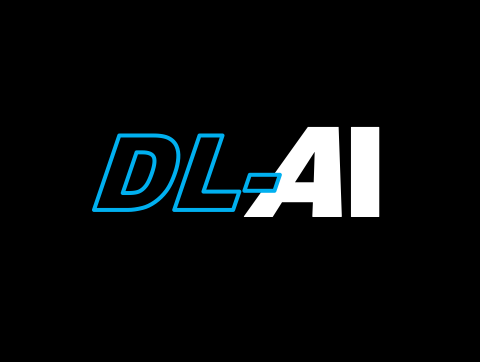- المعلم: Caroline Friedel
- المعلم: Michael Kluge
- المعلم: Elena Weiß
In almost all areas of business, industry, science, and everybody's
life, the amount of available data that contains value and knowledge is
immense and fast growing. However, turning data into information,
information into knowledge, and knowledge into value is challenging.To
extract the knowledge, the data needs to be stored, managed, and
analyzed. Thereby, we not only have to cope with increasing amount of
data, but also with increasing velocity, i.e., data streamed in high
rates, with heterogeneous data sources and also more and more have to
take data quality and reliability of data and information into account.
These properties referring to the four V's (Volume, Velocity, Variety,
and Veracity) are the key properties of "Big Data". Big Data grows
faster than our ability to process the data, so we need new
architectures, algorithms and approaches for managing, processing, and
analyzing Big Data that goes beyond traditional concepts for knowledge
discovery and data mining. This course introduces Big Data, challenges associated with Big Data,
and basic concepts for Big Data Management and Big Data Analytics which
are important components in the new and popular field Data Science.
- المعلم: Anna Beer
- المعلم: Simone Dey
- المعلم: Michael Fromm
- المعلم: Philipp Jahn
- المعلم: Matthias Schubert
During the last decade the availability of large amounts of data and the
strong increase in computing power allowed a renaissance of neural
networks and advanced planning techniques for independent agents.
Whereas the area of deep learning extended well established neural
network technology to allow a whole new level of data transformation,
modern reinforcement learning techniques yield the artificial backbone
for intelligent assistant systems and autonomous vehicles. The course
starts with an introduction to neural networks and explains the
developments that led to deep architectures. Furthermore, the course
gives an introduction to advanced planning techniques and how they can
be trained using deep neural networks and other machine learning
technologies.

- المعلم: Tanveer Hannan
- المعلم: Bailan He
- المعلم: Rajat Koner
- المعلم: Andreas Lohrer
- المعلم: Yunpu Ma
- المعلم: Matthias Schubert
- المعلم: Viktor Bengs
- المعلم: Eyke Hüllermeier
- المعلم: Marcel Wever
Um Zugang zu dieser Veranstaltung zu erhalten, melden Sie sich bitte in Uni2Work an: https://uni2work.ifi.lmu.de/course/W22/IfI/GridCloud
Dort erhalten Sie den Einschreibeschlüssel. Ohne eine Anmeldung in Uni2Work ist eine Teilnahme an der Klausur nicht möglich!
Grids und Clouds stellen unterschiedliche Ausprägungen eines verteilten Informatikparadigmas dar, durch das unter Ausnutzung von geographisch und administrativ verteilten Systemen im Bedarfsfall ein Pool von Ressourcen und abstrakten, virtualisierten und dynamisch-skalierbaren Services (z. B. Rechenleistung, Speicherkapazität, Plattformen, Visualisierung) über das Internet bereitgestellt wird.
In dieser Vorlesung (und den begleitenden Übungen) werden die Grids und Clouds zu Grunde liegenden Fragestellungen und Technologien vorgestellt und praktisch angewandt. Nach einer ausführlichen Motivation werden zunächst grundlegende verteilte Systemmodelle und Basistechnologien betrachtet. Darauf aufbauend werden folgende Themen behandelt: Cloud-Architekturen, Cloud-Programmierung und Software-Umgebungen (Workflows, MapReduce, Spark, Google Cloud Dataflow, Amazon AWS, Data Lakes, etc.), Virtuelle Organisationen, Grid Computing-Umgebungen, Resource Management, Data Management, Ubiquitous Computing mit Clouds und im Internet of Things, Grids of Clouds, Clouds of Grids.
Abschließend werden spezielle Fragestellungen zu Realzeitaspekten, wie sie zum Beispiel im Urgent Computing auftreten, und neue Trends behandelt.
Die Vorlesung richtet sich vornehmlich an Master-Studenten, die sich mit neueren Entwicklungen im verteilten Hochleistungsrechnen (Systemarchitektur, Programmierparadigmen, Leistungseffizienz, Energieeffizienz) vertraut machen wollen.
Der Relevanz des Themas wird durch Gastbeiträge externer Experten Rechnung zu tragen. Diese Vorträge werden teilweise in englischer Sprache gehalten.

- المعلم: Maximilian Höb
- المعلم: Dieter Kranzlmüller
- المعلم: Johannes Watzl
Modern Deep Learning has fundamentally changed Artificial Intelligence. Novel applications as well as significant improvements to old problems continue to appear at a staggering rate. Especially the areas of image and video understanding, retrieval, and synthesis have seen tremendous improvements and even the human baseline has been outperformed in several difficult applications.
The algorithms and the fundamental research in deep Machine Learning and Computer Vision that are driving this revolution are improving at an ever-increasing rate. The goal of this practical lab is, therefore, to give students hands-on experience with the state-of-the-art in this field of research. We will work on current problems in Computer Vision and Machine Learning and build on current algorithms to practically implement novel solutions. Consequently, the practical is also a good opportunity to take a close look at this area of research and prepare for a potential future final thesis.
Topics include but are not limited to:
* Image & video synthesis
* Visual superresolution and Image completion
* Artistic style transfer
* Interpretability of deep models
* Visual object classification, detection, tracking
* Self-supervised learning
* Metric and representation learning
* Modern deep learning approaches, such as transformers and self-attention, invertible neural networks, etc.
* …
Process
Students will work on a selected project. They will study existing approaches and then implement and evaluate an algorithm in close collaboration with a teaching assistant.
Requirements
Prior exposition to the foundations of machine learning and solid programming skills. Previous experience in deep learning is a plus.
- المعلم: Ursula Fantauzzo
- المعلم: Timo Milbich
- المعلم: Björn Ommer
Modern Deep Learning has fundamentally changed Artificial Intelligence. Long-held dreams (and concerns) are now gradually becoming reality with Deep Learning being applied almost everywhere, esp. to the problems of image and video understanding, retrieval, and synthesis. Several recent research demos have demonstrated to even outperform human performance in difficult applications such as generation of high-resolution natural images or classification of cancerous tissue in medical imagery.
The algorithms and the fundamental research in deep Machine Learning and Computer Vision that are driving this revolution are improving at an ever-increasing rate. The goal of this seminar is, therefore, to provide students with an overview over the latest research in this area. Besides taking an in-depth look at state-of-the-art publications, we will also facilitate the discussion of their shortcomings. Moreover, we will provide an opportunity to brainstorm about potential remedies for these limitations, which can serve as the basis for a future practical or a final thesis in a later semester.
Topics include but are not limited to:
* Image & video synthesis
* Visual superresolution and Image completion
* Artistic style transfer
* Interpretability of deep models
* Visual object classification, detection, tracking
* Self-supervised learning
* Metric and representation learning
* Modern deep learning approaches, such as transformers and self-attention, invertible neural networks, etc.
Process
We will provide a list of papers and each student will select one. Students have to read and understand the paper as well as related background information, present the ideas of the paper in the seminar, and provide a report. In addition, all students should engage in the discussions of the papers presented by others in the seminar.
- المعلم: Ursula Fantauzzo
- المعلم: Pingchuan Ma
- المعلم: Timo Milbich
- المعلم: Björn Ommer
- المعلم: Matthias Wright
- المعلم: Viktor Bengs
- المعلم: Eyke Hüllermeier
- المعلم: Marcel Wever
Die Vorlesung „Virtual Reality“ wird Theorie sowie grundlegende praktische Erfahrungen bei der Entwicklung von interaktiven und immersiven Anwendungen für professionelle VR-Installationen (z. B. CAVE) und Head-Mounted Displays (HMDs) vermitteln. Der Inhalt umfasst theoretische Grundlagen zu den Bereichen MR und speziell VR sowie die Vermittlung von Kenntnissen für alle Entwicklungsschritte von der Konzeption einer Projektidee bis hin zur fertigen Anwendung.
Die Anmeldung wird über Uni2Work stattfinden und ist von 1.10.2021 bis 14.10.2021 möglich! Plätze werden ehestmöglich nach dem 15.10. vergeben, akzeptierten Teilnehmern wird der Einschreibeschlüssel für Moodle übermittelt.
Die Vorlesung soll Dienstags von 13:00 - 16:00 stattfinden, der erste Termin ist der 19.10.2021!

- المعلم: Dieter Kranzlmüller
- المعلم: Elisabeth Mayer
- المعلم: Thomas Odaker